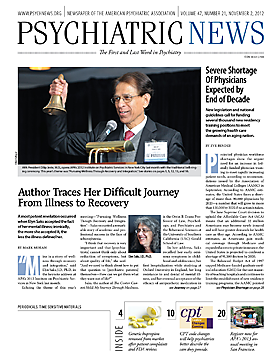Projected physician workforce shortages show the urgent need for an increase in federally funded physician training to meet rapidly increasing patient needs, according to recommendations issued by the Association of American Medical Colleges (AAMC) in September. According to AAMC estimates, the United States faces a shortage of more than 90,000 physicians by 2020—a number that will grow to more than 130,000 by 2025 if no action is taken.
The June Supreme Court decision to uphold the Affordable Care Act (ACA) means that an additional 32 million Americans may become newly insured and will have greater demands for health care as they age. According to AAMC estimates, as Americans gain medical coverage through Medicare and expanded access to private insurance, the United States is projected to confront a shortage of 91,500 doctors by 2020.
The Balanced Budget Act of 1997 capped Medicare-funded graduate medical education (GME) for the vast majority of teaching hospitals and continues to limit the establishment of new residency training programs, the AAMC pointed out. While the ACA did not eliminate the cap, it funded the training of approximately 300 additional physicians annually—which would have a minor impact on the looming physician shortage.
The AAMC recommendations call for an increase in federally funded GME training positions of 4,000 a year to meet the population’s increasing medical needs. This increase would boost the influx of new physicians by about 30,000 by the end of the decade, which would compensate for about a third of the expected shortage.
Half of the 4,000 new residency positions added annually should be allotted to primary care and generalist disciplines, with the other half divided among approximately 140 medical specialties, according to the AAMC, which also emphasized that a team-based health care delivery model would further improve access to medical services. As a fragmented health care system becomes team based and thus better integrated, newly insured patients would depend on their primary care physicians to coordinate care with specialists for certain medical conditions.
The AAMC recommendations also call for increased reimbursement of physicians who serve in geographically remote or economically disadvantaged areas and for federal funding of innovative health care delivery research.
Rep. Joseph Crowley (D-N.Y.) in September introduced H.R. 6562, the Resident Physician Shortage Reduction Act of 2012, which would add 3,000 additional Medicare-supported residency positions annually over a five-year span. In a press release announcing the bill, Crowley noted that “we face a cruel irony: retiring baby boomers and the newly insured, now covered through the Affordable Care Act, will be accessing our health care system in greater numbers, but we won’t have nearly enough doctors on-the-ready to deliver the health care services they’ll need…. A doctor shortage is something we just can’t ignore.”
How will this expansion of residency positions affect the field of psychiatry? According to Sidney Weissman, M.D., a professor of clinical psychiatry at Feinberg School of Medicine at Northwestern University and a former member of APA’s Board of Trustees, “the addition of 4,000 more residency positions per year is negligible—especially when divided between generalist and specialty positions.”
While the number of U.S. medical graduates is expected to increase by as much as 30 percent by the end of this decade, the number of residency positions available by that time would only have increased by 16 percent, even with the addition of new positions, Weissman said. Half of that increase in the number of residency positions would be divided among all of the medical specialty residency programs, and half would be allocated to primary care and generalist residencies. Since all medical specialty residency programs combined usually attract a higher proportion of medical graduates than do generalist programs, there will be more intense competition for most of the specialty programs.
What these scenarios foretell, Weissman told
Psychiatric News, is an increased number of medical graduates entering psychiatry residency programs (and other specialty training programs) for whom psychiatry is not their initial career choice, but perhaps their second or third choice. “Ultimately, medical graduates will have more complex decisions to make about their career paths due to the fact that they may not be able to train in their preferred specialty,” Weissman said. He does not think that this will, however, have a negative impact on any of the specialty medical fields.

